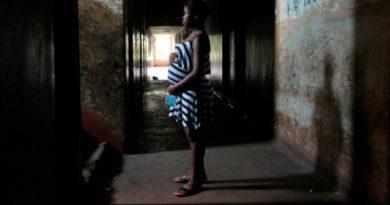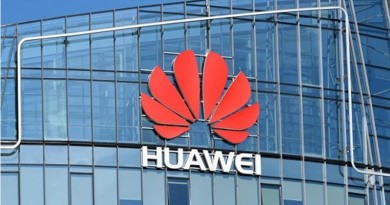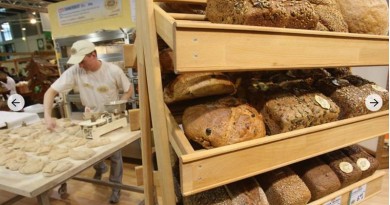Africa is the world’s second fastest growing region – Akinwumi Adesina
Africa’s economies are defying various challenges, such as climate change, geopolitical tensions, inflation, food insecurity, and rising debt, by continuing to grow at a faster pace than the global average of 3%. According to Dr Akinwumi Adesina, the President of the African Development Bank Group, Africa is expected to have 11 out of the 20 fastest-growing economies in the world by 2024, with 15 African countries already experiencing output expansions of over 5%.
These positive projections were highlighted during the Bank’s annual luncheon for ambassadors, heads of diplomatic missions, and representatives of international organizations. The African Development Bank’s recently launched African Macroeconomic Performance and Outlook Report for 2024 further confirms Africa’s position as the fastest-growing region in the world after Asia, surpassing the global average growth rate.
Adesina emphasized the Bank’s commitment to supporting countries in building resilience against economic and climate shocks, as well as addressing debt service capacities and inflation. The luncheon marked a significant milestone as it was the first one held in nearly five years due to the Covid-19 pandemic and also took place after the Bank’s historic capital increase of 150% in 2019. Additionally, the African Development Fund received a record $8.9 billion in donor contributions, marking the largest replenishment in the Fund’s history since its establishment in 1973.
The African Development Fund is poised to expand its impact further, following the approval from the Bank Group governors to utilize its equity in the capital markets. This significant decision, made during the 2023 Annual Meetings in Sharm El Sheikh, Egypt, will enable the African Development Fund to secure an additional $27 billion to enhance its assistance for the economic progress of the 37 low-income countries.
Adesina updated the diplomats on the financial innovations of the Bank Group. Recently, the Bank introduced the pioneering hybrid capital on the capital market, becoming the first multilateral development bank to do so globally. The $750 million hybrid capital issuance, which attracted $6 billion in oversubscription, stands as a remarkable achievement on a global scale.
Furthermore, he discussed the collaboration between the Bank and the Inter-American Development Bank to optimize the utilization of Special Drawing Rights (SDRs) by redirecting them from SDR-rich nations to the African Development Bank. This rechanneling of SDRs to the African Development Bank is expected to be leveraged by 3-4 times.
Adesina highlighted that the Bank Group’s Boards of Directors sanctioned 159 operations last year, totaling $10 billion in financing for countries, marking the second-highest level of funding in the Bank’s history.
In summary, he emphasized that the Bank’s initiatives have directly impacted the lives of 400 million individuals over the past seven years. Noteworthy achievements during this period include the allocation of over $44 billion to support infrastructure projects, solidifying the Bank’s position as the primary multilateral financier of infrastructure in Africa.
Infrastructure advancements encompass the construction of significant bridges like the Senegambia Bridge, connecting Gambia and Senegal. Additionally, the Bank allocated $500 million to bolster the development of the Lobito Corridor, linking Angola, Zambia, and the Democratic Republic of Congo, in collaboration with the United States Development Finance Corporation and the Africa Finance Corporation.
Infrastructure development encompasses various projects, including the construction of significant bridges like the Senegambia Bridge, which now connects Gambia and Senegal.
In collaboration with the United States Development Finance Corporation and the Africa Finance Corporation, the Bank has allocated $500 million to support the development of the Lobito Corridor. This corridor will establish a connection between Angola, Zambia, and the Democratic Republic of Congo.
The African Development Bank Group financed the construction of the fourth bridge in Abidjan, the commercial capital, as reported in this link: (https://apo-opa.co/4c23wmE).
Since Adesina assumed the presidency of the Bank in 2015, investments in Cote D’Ivoire have increased significantly. The institution’s investments have grown more than fivefold, from $460 million in 2015 to $3.1 billion in 2023.
The Bank has taken proactive measures to address climate change and promote agricultural innovation. Initiatives such as the $1.5 billion African Emergency Food Production Facility (https://apo-opa.co/3P1FCOk) and the Feed Africa Summit (https://apo-opa.co/3TkIeJI), which has mobilized $72 billion, demonstrate the Bank’s leadership in this area.
To improve healthcare access and bolster Africa’s pharmaceutical industry, the Bank has developed a strategy for quality health infrastructure and a Pharmaceutical Action Plan. Over the next decade, the Bank will allocate $3 billion to finance health infrastructure.
In 2022, the Bank established the African Pharmaceutical Technology Foundation (https://apo-opa.co/430GBnD) to support the continent’s production of medicines and vaccines. This initiative has gained recognition as one of the 24 development organizations to watch in 2024, as highlighted by Devex (https://apo-opa.co/3UYHKdp).
The Bank is actively implementing various initiatives to expand economic opportunities and enhance skills for youth and women, as shared with the diplomats. Mauricio Rueda Beltz, the Apostolic Nuncio in Cote d’Ivoire and the dean of the diplomatic corps, expressed his support for the African Development Bank’s dedication to fulfilling the aspirations of the people in terms of sustainable economic, social, and environmental progress. He also extended his blessings to Africa, a land of abundant growth and prosperity.




